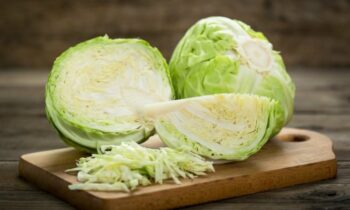Vegans have a 14% lower chance of creating malignant growth than carnivores, as indicated by an enormous report that joins meat-eating to an uplifted gamble of the sickness.
As per a review distributed in the open-access diary ‘BMC Medicine’, eating meat multiple times or less each week is related with lower generally disease hazard.
Eating less meat each week seems to bring down an individual’s gamble for malignant growth, a review distributed Wednesday by the diary BMC Medicine found.
A group of scientists from Oxford University examined information on in excess of 470,000 Britons and found that pescatarians had a 10% diminished gamble. Contrasted and individuals who eat meat consistently – characterized as in excess of five times each week – the people who consumed limited quantities had a 2% lower hazard of creating malignant growth, the review found.
Cody Watling and partners from the University of Oxford, UK examined the connection among diet and malignant growth hazard by breaking down information gathered from 472,377 British grown-ups who were enlisted to the UK Biobank somewhere in the range of 2006 and 2010. Members, who were matured somewhere in the range of 40 and 70 years, detailed how regularly they ate meat and fish and the specialists determined the rate of new tumors that created over a normal time of 11 years utilizing wellbeing records.
Contrasted and all meat-eaters, hazard for malignant growth is 10% lower among the individuals who eat fish, yet not meat, the specialists said.
“In this enormous British partner, being a low meat-eater, fish-eater or veggie lover was related with a lower hazard of all malignant growth destinations when contrasted with standard meat-eaters,” the examination found.
The scientists observed that the general malignant growth hazard was 2% lower among the people who ate meat multiple times or less each week, 10% lower among the individuals who ate fish however not meat, and 14 percent lower among veggie lovers and vegetarians, contrasted with the individuals who ate meat in excess of five times each week.
Veggie lovers and vegetarians have a 14% lower hazard for the illness contrasted and individuals who eat meat in excess of five times each week, as per the analysts.
In any case, the creators, drove by Cody Watling from Oxford’s populace wellbeing malignant growth the study of disease transmission unit, clarified that their discoveries didn’t indisputably demonstrate customary meat-eating expanded the gamble of disease. Smoking and muscle to fat ratio could likewise assist with clarifying the distinctions found, they said.
While contrasting the rate of explicit tumors and members’ eating regimen, the creators found that the people who ate meat multiple times or less each week had a 9 percent lower hazard of colorectal malignant growth, contrasted with the individuals who ate meat in excess of five times each week. They likewise observed that the gamble of prostate disease was 20% lower among men who ate fish however not meat and 31 percent lower among men who followed a veggie lover diet, contrasted with the people who ate meat in excess of five times each week. Post-menopausal ladies who followed a veggie lover diet had a 18 percent lower hazard of bosom malignant growth than the people who ate meat in excess of five times each week. Notwithstanding, the discoveries proposed that this was because of vegan ladies having a tendency to have a lower weight list (BMI) than ladies who ate meat.
“Be that as it may, further examination is required with bigger number of vegans and pescatarians” – – or fish eaters – – “to more readily investigate and comprehend these affiliations,” said Watling, a doctoral understudy in disease the study of disease transmission at the University of Oxford in England.
The analysts forewarned that the observational idea of their review didn’t consider determinations about a causal connection among diet and disease hazard. Also, as UK Biobank dietary information was gathered at a solitary time-point, rather than throughout a nonstop timeframe, it may not be agent of members’ lifetime eats less.
Subsequently, the American Cancer Society suggests restricting admission of red meat, or hamburger, and handled meats as a feature of an eating routine arrangement intended to streamline wellbeing and lessen hazard for malignant growth.
Moreover, in light of the fact that the U.K. Biobank dietary information was gathered at a solitary time-point, instead of more than quite a long while, it may not be delegate of members’ lifetime dietary patterns, they said.
“There are various mixtures that are found in red and handled meat, either through cooking or added during the handling, that might harm cells and subsequently could expand the gamble of colorectal disease,” Watling said.



